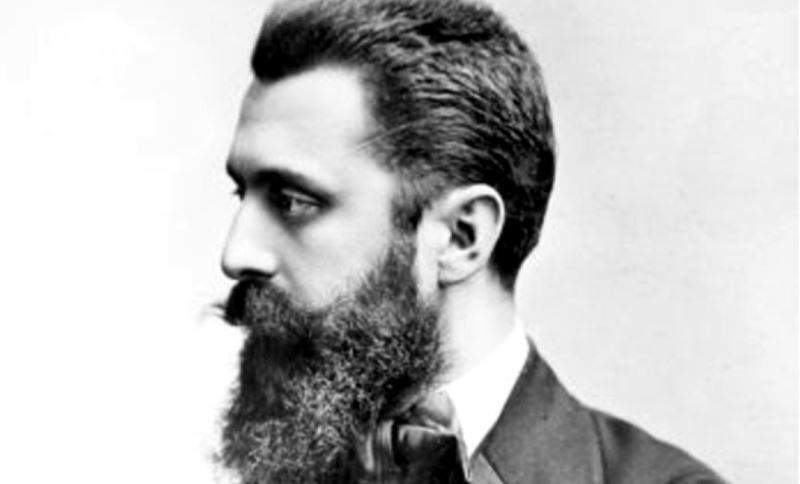Father of Zionism: Who is Theodor Herzl?
Theodor Herzl, the political founder of Zionism, was born in Budapest in 1890. Theodor Herzl, the child of a wealthy family, studied law in Vienna. He worked as a reporter and writer for the Neue Freie Press newspaper.

Theodor Herzl, who brought Zionism to the agenda, was greatly affected by the anti-Semitic demonstrations in France. Thereupon, he wrote a book called 'The Jewish State' in 1896. Upon his call in 1897, he convened the 1st Zionist World Congress in Basel, Switzerland. He said at the congress, "I founded the Jewish State here today, but if I say it out loud, the whole world will laugh. But in five years or fifty years, everyone will know it like this." He also stated the borders of the Jewish State planned to be established at the congress. At the end of the Congress, the idea of establishing a Jewish state received support and Herzl was elected president of the World Zionist Organization. Theodor Herzl and his supporters did not see Judaism as a belief, but only as a race, and therefore they believed that they should establish a state.
According to Herzl's project, it did not matter where the Jewish state would be established. It could be established anywhere in the world. In fact, according to Herzl's project known as the "Uganda Plan", Herzl first thought of Uganda as the ideal homeland. However, he changed his decision and decided on Palestine.
Theodor Herzl (2 May 1860 – 3 July 1904) was an Austro-Hungarian Jewish journalist and political activist who was the father of modern political Zionism. Herzl formed the Zionist Organization and promoted Jewish immigration to Palestine in an effort to form a Jewish state.
He cooperated with the British to establish a Jewish State in the Palestinian lands where the Hill of Zion is located. He contacted the German Emperor Wilhelm II, who had good relations with Sultan Abdulhamid II, to demand Palestine, but he could not get the result he wanted. That's why he personally comes to Istanbul and tries to meet with Abdulhamid II. He managed to meet with Sultan Abdulhamid on 19 June 1896. Abdulhamid II, who had a cold view of the issue of Jewish settlement in Palestine, "categorically" rejected an autonomous Jewish state in Palestine.
Herzl, unsuccessful in his first attempt, came to the palace again on May 19, 1901, and met with Sultan Abdulhamid. In this meeting, Jerusalem is rejected by Sultan Abdulhamid and he suggests the Jews settle in Mesopotamia. Mesopotamia was not among Herzl's goals, and this suggestion was not accepted. Thereupon, he met with the British Minister of Colonies, Chamberlain, with the idea that the problem would be solved by re-establishing relations with England. Herzl, who did not get the result he wanted from this meeting, was invited to London after a short time. In this meeting, Uganda is offered to him as the "Jewish homeland", but the organization rejects it at the congress. Herzl comes to Istanbul once again for the "promised lands" of Palestine and Jerusalem, but Sultan Abdulhamid again rejects his request. The fact that the Palestinian lands are the "promised land" is the reason why Herzl turned his attention to them.
Negotiations continued until Herzl's death, but no results were obtained.
Theodor Herzl, who had three children with his wife whom he married in 1881, married Julie Naschauer in 1889.
Herzl died on July 3, 1904, in Reichenau an der Rax, Austria, at the age of 44.
45 years after his death, on August 17, 1949, his body, covered with the flag of the State of Israel, was taken to the land on which he dreamed of establishing a Jewish State.
